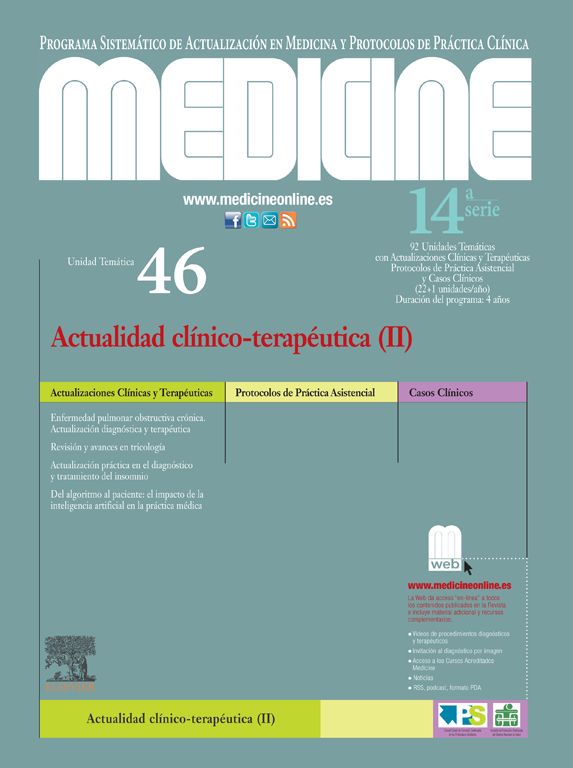El desarrollo de insuficiencia renal ocurre con frecuencia en los pacientes con enfermedad hepática crónica avanzada (EHCA). Su aparición dificulta el tratamiento de las complicaciones de la hepatopatía y empeora su pronóstico. Si bien la causa más frecuente de insuficiencia renal en estos pacientes es la prerrenal, es importante sospechar la presencia de un síndrome hepatorrenal (AKI-HRS), ya que el diagnóstico y el tratamiento precoz han demostrado mejorar la supervivencia. El AKI-HRS es un trastorno funcional renal grave y potencialmente reversible, secundario a la disfunción circulatoria sistémica y esplácnica característica de los pacientes con cirrosis, hipertensión portal y ascitis. El diagnóstico del AKI-HRS debe sospecharse cuando el paciente no responde a las medidas iniciales y, además, cumple una serie de criterios diagnósticos específicos. El tratamiento del síndrome hepatorrenal se basa en la administración combinada de vasoconstrictores esplácnicos y albúmina por vía intravenosa. La terlipresina administrada en infusión continua es el vasoconstrictor más empleado. El desarrollo de AKI-HRS conlleva una elevada mortalidad, siendo el trasplante hepático el tratamiento definitivo, por lo que debe considerarse de forma individualizada en cada paciente.
Palabras clave
Kidney failure often occurs in patients with advanced chronic liver disease (ACLD). When it appears it hinders the treatment of the complications of the liver pathology and worsens the prognosis. Although the most frequent cause of kidney failure in these patients is prerenal, it is important to suspect the presence of a hepatorenal syndrome (AKI-HRS), as early diagnosis and treatment have been shown to improve survival. AKI-HRS is a severe functional kidney disorder that is potentially reversible, secondary to the systemic and splanchnic circulatory dysfunction that is characteristic of patients with cirrhosis, portal hypertension and ascites. The diagnosis of AKI-HRS should be suspected when the patient does not respond to initial measures and also fulfils a series of specific diagnostic criteria. Treatment of the hepatorenal syndrome is based on the combined administration of splanchnic vasoconstrictors and intravenous albumin. Terlipressin administered in continuous infusion is the most widely used vasoconstrictor. Developing AKI-HRS leads to a high mortality rate, and liver transplant is the definitive treatment, so that it should be considered on an individual basis for each patient.
Keywords
Identifíquese
¿Aún no es suscriptor de la revista?
Comprar el acceso al artículo
Comprando el artículo el pdf del mismo podrá ser descargado
Teléfono para incidencias
De lunes a viernes de 9h a 18h (GMT+1) excepto los meses de julio y agosto que será de 9 a 15h



